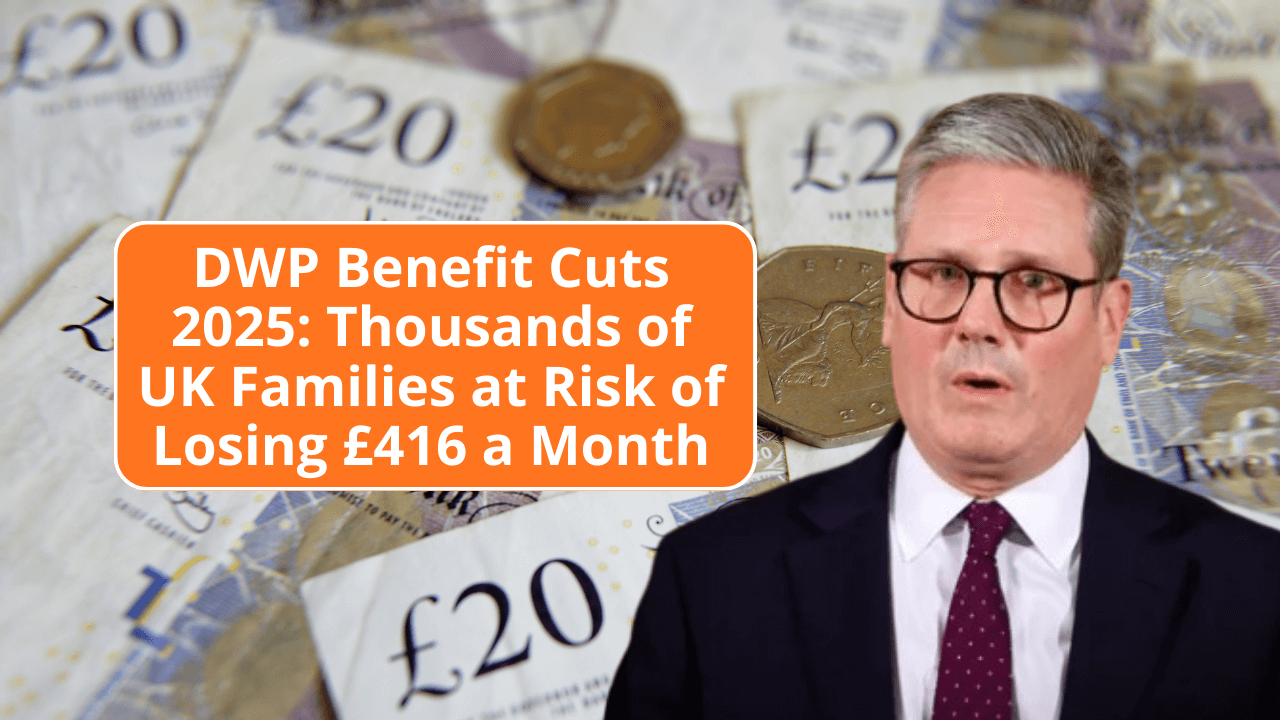The Department for Work and Pensions (DWP) has announced significant benefit cuts set to take effect in 2025. These changes could impact thousands of UK families, with some potentially losing up to £416 per month. Understanding these adjustments is crucial to ensure you can plan your finances and know what support you may still be eligible for.
Why Are Benefits Being Cut?
The government has stated that the changes are part of a wider effort to manage public spending and reduce welfare dependency. Rising costs and inflation have put pressure on the DWP budget, prompting a review of benefit eligibility and amounts. While the aim is to support those most in need, many families are concerned that the cuts could push them into financial difficulty.
Who Will Be Affected?
The benefit cuts will affect a wide range of claimants, including those on:
- Universal Credit
- Personal Independence Payment (PIP)
- Disability Living Allowance (DLA)
- Employment and Support Allowance (ESA)
Households with multiple children or those already living on tight budgets may feel the impact most. Preliminary estimates suggest that up to 100,000 families could see a reduction in their monthly support.
How Much Could You Lose?
Some families may lose as much as £416 per month. The exact amount depends on your current benefits, household income, and circumstances. For example:
- Families with children receiving child elements of Universal Credit may see a decrease.
- Individuals on disability benefits may experience reductions if their eligibility criteria change.
- Low-income households relying on multiple benefits could face a cumulative loss.
It is essential to review your current entitlement and calculate the potential impact of these cuts on your monthly budget.
Changes to Universal Credit
Universal Credit is a key area affected by the DWP’s changes. Adjustments include:
- Reduction in standard allowance rates
- Changes to work-related requirements
- Adjustments to child elements for larger families
These modifications may result in a lower monthly payment for claimants, affecting day-to-day living expenses.
Impact on Personal Independence Payment
PIP is designed to support individuals with long-term disabilities. Changes in assessment criteria or payment rates may lead to reductions in monthly income. Claimants are advised to:
- Review their current PIP status
- Prepare supporting documentation for reassessments
- Seek guidance if they believe their payment has been unfairly reduced
How to Protect Your Income
Although these cuts are concerning, there are steps families can take to minimise the impact:
- Check Your Eligibility: Make sure you are claiming all benefits you are entitled to. Sometimes, changes in circumstances can affect eligibility, so keeping your details up-to-date is essential.
- Budget Carefully: Create a monthly budget to understand where money is going and identify areas to save.
- Seek Advice: Charities and advice centres such as Citizens Advice can provide guidance on navigating benefit changes.
- Appeal Decisions: If you believe your benefits have been incorrectly reduced, you have the right to appeal. Gather supporting evidence and submit your appeal promptly.
Government Support Options
Despite the cuts, several support mechanisms remain:
- Council Tax Reduction: Local councils may offer discounts or exemptions based on income.
- Housing Support: Some housing benefits and support schemes are still available for low-income families.
- Emergency Grants: Certain charities provide one-off grants for essentials such as food, utilities, and heating.
The Emotional Impact
Beyond finances, benefit cuts can affect mental health and wellbeing. Anxiety over meeting household expenses is common, and families may feel stressed about future uncertainty. It’s important to reach out to support networks, community services, or mental health professionals if needed.
Planning Ahead
Families facing a potential loss of £416 per month should act early:
- Review monthly expenses and cut non-essential costs.
- Explore additional income opportunities, such as part-time work or freelance projects.
- Stay informed about further announcements from the DWP. Government websites and reputable news sources provide updates on deadlines and eligibility changes.
Tips for Maximising Your Benefits
To make the most of available support:
- Update Your Claim: Ensure all personal information is current to prevent payment delays.
- Consider Other Benefits: Some households may be eligible for Pension Credit, free school meals, or childcare support.
- Use Benefit Calculators: Online tools can help estimate entitlement and identify gaps.
- Seek Local Assistance: Food banks, community centres, and local charities often provide practical support.
Common Misconceptions
There are several myths surrounding the 2025 benefit changes:
- Myth: Everyone will lose the same amount.
Reality: Reductions vary based on household income and circumstances. - Myth: Disability benefits are safe.
Reality: Some PIP and DLA recipients may see changes depending on reassessments. - Myth: You cannot appeal a reduction.
Reality: There is a formal process to challenge benefit decisions.
Understanding the facts is key to managing expectations and planning effectively.
Staying Informed
Keep up-to-date with the latest information:
- Official DWP Announcements: The DWP website provides detailed guidance on eligibility and payment changes.
- Local News: Newspapers and regional online platforms often report updates relevant to your area.
- Community Groups: Social media groups and forums can offer peer support and advice.
Final Thoughts
DWP benefit cuts in 2025 present a challenging situation for many UK families. While the loss of up to £416 per month is significant, taking proactive steps can help mitigate the impact. Understanding your entitlements, reviewing your budget, and seeking support where needed are essential to navigating this period. Staying informed and planning ahead will give families the best chance to maintain financial stability during these changes.
